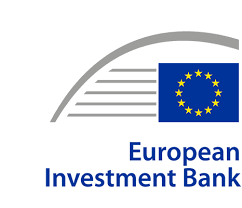
European Investment Bank
Last updated on 03 Mar 2024
Key facts
The EIB is the lending arm of the European Union. It is the world’s largest multilateral lender and the biggest provider of climate finance.
PUBLIC
1958
Credit rating (Moody's)
AAA
Foreign currency
Authorizations and exposure
FY 2022 authorizations top sectors
Transport
29%
Global loans
18%
Energy
15%
Health, education
9%
Miscellaneous infrastructure
8%
FY 2022 exposure
Products
- Project loans: EIB lends to individual projects for which total investment cost exceeds EUR 25 million; the loans can cover up to 50% of the total cost for both public and private sector promoters, but on average this share is about one-third
- EIB can also finance multi-component, multi-annual investment programs using a single “framework loan”, which funds a range of projects, usually by a national or local public sector body, most frequently regarding infrastructure, energy efficiency/renewables, transport, and urban renovation
- Interest rates can be fixed, floating, revisable, or convertible
- Fees: In certain cases, EIB may charge fees for project-appraisal, legal services, commitment, non-utilization, etc.
- Most of EIB’s loans are in EUR, but it can also lend in GBP, USD, JPY, SEK, DKK, CHF, PLN, CZK, and HUF, as well as in a few other currencies
- Repayment is normally on a semi-annual or annual basis; grace periods for capital repayment may be granted for a project’s construction phase
- Intermediated loans: EIB makes loans to local banks and other intermediaries which subsequently on-lend to the final beneficiaries, such as SMEs, medium-sized enterprises (midcaps), large businesses, local authorities, national administrations, and public sector bodies
- Loan conditions can be flexible in terms of size, duration, structure, etc.
- On-lending decisions remain with the intermediary institutions, which also retain the financial risk of the on-lending
- Under intermediated loans, EIB normally has no contractual relationship with the final beneficiaries, although final beneficiaries need to be informed about EIB involvement
- Framework loans for the public sector
- Investment costs (typically over a period of 3-5 years) of the different sub-projects of the investment program
- Amount: From EUR 100 million
- EIB covers up to 50% of the programme’s costs
- If the program also benefits from EU Funds, EIB and EU finance cannot exceed 70% of the total project investment costs (with exceptions)
- Structured finance: EIB can provide a structured finance facility using a mix of the following instruments:
- Senior loans and guarantees incorporating pre-completion and early operational risk
- Subordinated loans and guarantees ranking ahead of shareholder subordinated debt
- Mezzanine finance, including high-yield debt for SMEs experiencing high-growth or undergoing restructuring
- Project-related derivatives
- Guarantees and securitization: EIB provides guarantees for senior and subordinated debt in both small and large projects, either in standard form or as a debt service guarantee similar to that offered by monoline insurers
- Beneficiaries can be large private and public projects or partner intermediaries providing financing to midcaps
- Project Bond Credit Enhancement (PBCE): Takes the form of a loan from EIB, with the support of the European Commission and is given to the promoter at the outset
- It may also take the form of a contingent credit line which can be drawn upon if the revenues generated by the project are not sufficient to ensure senior debt service
- The PBCE underlies the senior debt and therefore improves its credit quality
- Venture capital: Managed by the European Investment Fund (EIF), this activity is focused on establishing a venture capital ecosystem in Europe, working with venture capital funds (acting as intermediaries) that invest in innovative high-tech SMEs in their early growth phases
- Venture debt: EIB commits capital for the long run, allowing companies to focus more on growing their business rather than constantly seeking out investors
- Financing is not dilutive and is complementary to equity investments
- Can commit venture debt from EUR 7.5 million up to EUR 50 million
- Repayment periods of 5 years with 2 to 3-year availability periods
- Hands-off approach with no direct involvement in daily management
- Microfinance: EIB can either directly invest in financial institutions, such as microfinance institutions (MFIs) and banks, or indirectly in microfinance investment vehicles (MIVs), such as funds or microfinance groups
- Medium/long-term loans to financial institutions
- Direct equity investments in financial intermediaries
- Equity and debt investments in MIVs that in turn provide debt and/or equity to financial institutions
- The EIB group can also provide technical assistance via grants
- Equity and fund investments
- EIB-EIF Co-Investment Facility: A joint instrument between the two entities, investing equity and hybrid debt alongside top-rated, EIF-backed venture capital/private equity and mezzanine fund managers into European SMEs and mid-caps
- The facility is fully funded from the EIB, with a backing provided by the European Fund for Strategic Investments (EFSI), the central pillar of the European Commission’s Investment Plan for Europe
- EIB also offers technical and financial advisory services to its clients, complementing its EIB loans and strengthening the economic and technical foundations of an investment
Policies
- EIB focuses on innovation and skills, small businesses, infrastructure, and climate and environment
- All the projects EIB finance must be bankable, but they must also comply with high technical, environmental, and social standards
- EIB will typically not lend more than 50% of the cost of a project
News
- 2024: EIB backs €3.2 billion for clean energy, transport and business investment
- 2024: Poland: EIB Group and Europejski Fundusz Leasingowy join forces to facilitate new financing for small and medium-sized businesses
- 2023: EIB Global offers support to Ukraine, Moldova and Georgia on the path to EU accession
- 2023: The European Investment Bank joins the Development Data Partnership


